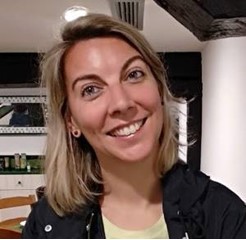It’s the age-old question – what is the best way to learn a language? It’s not easy to look at your own methods and figure out what works and what you need to stop. But one thing you can do is look at how the experts are doing it – those people who have successfully learned many languages. Clozemaster have been lucky enough to get up close and personal with 13 of these experts who have shared their secrets on what works for them and what makes a successful language learner. Let’s have a look at what they have to say.
Shahidah from Black Girls Learn Languages

Tip: Forget perfection
My top fundamental tip for learning language is to forget PERFECTION! It gets in the way of fun and it gets in the way of skill. A very wise man named Confucius once said, “Better a diamond with a flaw than a pebble without.” Many times, we get so consumed with learning how to say or write things perfectly that we cripple our own lingual growth. It is much better to experience relative ease in everyday written and verbal conversation with few errors, than to be unable to communicate because you over-analyze everything you write and say.
| About Shahidah:
I’m Language Bae, fun-loving creator of Black Girls Learn Languages, a multi-platform digital community for black women in the language learning community. But if we’re cool like that, you can call me Shahidah. |
Elizabeth Hilton from Adventures in Fluency

Tip: Immerse yourself in your target language
Each New Year, instead of making resolutions, I pick a new language to learn and make it my Theme for the year. As an incentive for all that language learning, I plan a trip. I then throw myself into this new language by completely immersing myself into the theme.
I spend at least twenty minutes every day reading, writing, speaking and listening to my new language with language apps and podcasts. I find all the restaurants in my area with cuisine from my target country and eat there. I let the new language inspire new hobbies. I find people who speak the language and make them my language buddies. I research the cultural connections of those who speak that language in my community. I listen to music and watch movies in the language. I sign up for live language courses.
This complete immersion motivates me to stay on track with my language goals. The climax of this project is the journey, the adventure in fluency. I step off the plane, my ears fill with the sounds of those around me. At first, it is like listening to a radio that is not tuned in. The words are hard to make out. I panic. But I am patient. Soon, as if by magic, the words pop out at me. I start to understand more and more. I am speaking, and maybe even dreaming, in a whole new language. And that is the best part.
| About Elisabeth:
Ten years ago, I decided that for every country I visited, I would learn its language before I traveled. My goal is to encourage people to learn languages, travel, connect and communicate. I am a mother of two, a public defender and a dancer who lives in San Francisco when I am not traveling. |
Penny from Lingo Mama

Tip: Maximise exposure, lose inhibitions, understand what motivates you
My top tip for learning a language is to get as much exposure as possible to native speakers and expressions. This might be through speaking in person, online, through music and films, social media, traditional language classes or language learning apps. For me, because I am learning tonal languages (Mandarin Chinese and Vietnamese), it has been really helpful to listen closely to people speaking and try to mimic what I’m hearing. Tonal languages rely so much on getting the pronunciation spot on so practice speaking and getting a lot of listening practice is vital.
My second tip is to try as hard as you can to lose your inhibition when you’re starting out speaking a new language. This can be really difficult especially if you are struggling to be understood by people (I know it took me ages speaking Vietnamese in Vietnam before I was understood!) Don’t be demoralised! You will get there eventually and then the feeling of conversing freely and naturally will be such a thrill!
My third tip is to know what motivates you. Do you need rewards and incentives to keep on track? Or do you like ticking off new words from a vocab list and progressing through a textbook? Perhaps you thrive in a group learning environment? Or maybe you need a study buddy or tutor to keep you on track? Once you know what motivates you, you can design your learning to meet these needs. For me, rewards and incentives are really important, so I plan Language Trips as much as I can into my schedule to help me keep motivated and looking forward to using my language and learning more when I’m in-country. Exams are my other method of keeping on-track (these aren’t for everyone!), but I find having a goal and a deadline really helps me keep focused on my learning.
| About Penny:
Penny is a language and travel lover, and combines her two passions by regularly taking Language Learning Trips. Her main focus is Asia and currently she is learning Mandarin Chinese and Vietnamese. |
Olga Ermishkina from Panda Russian

Tip: Do something regularly, no matter how small
Why it is important:
It is more effective to learn a language on a daily basis for a long time than to do it in a short active burst. Persistence matters. The magic happens when your brain gets regular practice. People often start with huge enthusiasm, practicing for 2-3 hours a day… But they can’t keep up with that pace. As adults, we all have work, kids, other responsibilities. So be realistic. It is a marathon, not a sprint.
Think big, or, rather, think long: 6 months, 9 months, 1 year, 2 years. How much time you can realistically spend on language learning every day for 2 years? Even if the answer is “5 minutes” it is better than giving up after a couple of weeks. Find something that you can do regularly without much effort and stick to it. Take something pleasant. I personally love smartphones apps and TV shows, other people love grammar books. It may be something completely different for you.
Try different ways and see what sticks. Make it a habit. Try to combine it with some other regular activity in your life (waking up, driving, jogging, waiting for a bus, being on a train, etc.). You can do more on some days, when you have enough time and when you are willing to, but stick to the minimum habit on all other days. Happy language learning!
| About Olga:
Olga Ermishkina is a Russian language teacher, an e-learning content creator and a language learning enthusiast; she speaks Russian, English and German and can read in Spanish, Italian, French, Portuguese, Finnish, Estonian, Swedish and Ukrainian. |
Ingrid Truemper from Second-Half Travels

Tip: Watch movies and TV shows in your target language
When my mother first immigrated to the United States from Germany, she watched soap operas to teach herself the American accent and slang. As a young child, I didn’t speak English, so when it came time for preschool, my parents plunked me down in front of Mister Rogers and Sesame Street, and I quickly absorbed the basics.
Watching movies and TV shows in your target language is an enjoyable, effective way to practice vocabulary and listening skills. You also learn about other cultures and gain exposure to different accents and slang.
Netflix and Amazon Prime are both rapidly expanding their international programming, a real boon for language learners. YouTube can also be an excellent content source.
If you’re a beginner, start with subtitles in your native language. As your comprehension improves, switch to subtitles in the target language, as studies show it enhances language learning. Try keeping a notepad nearby and jotting down any interesting new vocabulary; you can add it to your preferred flashcard app like Anki later.
| About Ingrid:
Ingrid Truemper retired early at 43 from software engineering to devote herself to her passions for language learning and travel. Follow her journey at Second-Half Travels. |
Marie from Just French It

Tip: Language learning is a personal journey
It can be so easy to be demotivated by all those YouTubers and bloggers who speak so many languages. When they do it, it seems effortless.
Don’t lie, you’re a little bit jealous. I was.
But it’s not good, because you end up feeling like you’re doing something wrong, or worse, that you are not cut for it.
When I first started blogging about languages, I felt like a fraud because I was only speaking English and my native language, French. When all those people were trilingual, multilingual, polyglots…
Here’s the thing though – stop comparing yourself to others. Seriously.
If it takes you longer to learn, then be it. If you are not interested in learning 247 languages at the same time, don’t do it. If you are, that’s fine.
Same thing, if your goal is to speak French, stop reading so much to do like everyone else, and start SPEAKING.
Focus on what YOU want, on how YOU learn the best, and on YOUR goal.
Now that I know that, I’m learning Swedish at my own pace, without pressure, and it is SO MUCH MORE enjoyable!
| About Marie:
Bonjour, je suis Marie, and I’m taking your French to the next level on JustFrenchIt.com. |
Elena from Hitoritabi.it

Tip: Be kind to yourself
Language learning is an exciting, but sometimes frustrating challenge.
There will be days when you feel silly and others when the temptation to throw your books out of the window grows strong. You might compare yourself to someone else or feel like you’re making no progress. That is when the negative self-talk will try to sneak in – don’t let it.
The words you say to yourself, about yourself, shape your world. If you keep ruminating “I’m not good at language learning”, your actions will probably reflect your thoughts in a self-fulfilling prophecy.
Kindness is my number one antidote for when I start feeling that way. I take a step back and reflect on what’s going on, ask myself “would I be so harsh to a friend?”
Or I write down 3 things that I can do now and I couldn’t do last year. This helps to put things back into a balanced perspective.
We all have lives to take care of and language learning can’t always be our priority – that’s OK. Acknowledging where we are, without pushing ourselves to the point of exhaustion or feeling guilty because we’re not doing enough, is the best thing we can do to keep loving language learning.
Accept the setbacks, be grateful even for the tiniest victories and be forgiving: this is my number 1 tip.
| About Elena:
Elena is an introvert, grammar geek and proud Ravenclaw with a passion for languages. She comes from Italy and has lived abroad for many years in Japan, England and now Sweden. On her blog at hitoritabi.it she helps fellow introverts and other quiet learners to keep anxiety out of language learning. |
Olly Richards from I Will Teach You a Language

Tip: Focus on input
There’s something I’ve changed my mind on recently. Something important. In the past, when I started a new language, I focused a lot on speaking. I’d learn words, phrases and anything that would help me start speaking as soon as possible. That was motivating. But it was also a bit short-sighted.
Now, I focus all my time and energy on input – reading and listening in the target language. Why? Because when you get that much exposure, you build a rock-solid foundation, and reach “instinctive” level in the language much faster (which is really cool). I hardly ever see people doing this. They learn with textbooks, apps, and other approaches that focus them on the detail. But the detail doesn’t scale.
In order to learn to build a native-like understanding in the language, you’ve got to spend a LOT of time with it –and that’s where listening and reading comes in. The key to doing this successfully is to make sure you find compelling material at just the right level, and that’s what I focus on making for people now with my books and other language material.
| About Olly:
Olly Richards is a successful language learner, author and blogger from the UK. |
Pau from Pau Ninja

Tip: Focus on useful vocabulary materials
Average learners like me have a hard time remembering words. Imagine if we end up using materials containing vocabulary we are not even going to use in the future!
For example, I do love using Assimil books because there are over 2.000 words which are used and repeated over and over in my target language.
But of course, I don’t stick with just one thing.
Clozemaster is another tool that I would recommend because it also provides two of the best combination to make a language learning experience memorable: context and useful words.
People forget that we are allowed to use more than one book or tool to learn a language. Probably because we are going after that “pill” that will make us speak in a day. That pill is called daily habit and making our routines fun, combined with the fact of sticking with it, brings more results than going for our language practice once a week for several hours.
We have heard over and over that our brain is a muscle, so train it like such. Instead of going to the gym once a week for three hours to do bicep curls (vocabulary you won’t end up using), go once every day or every two days and do thirty minutes of deadlifts and squats (vocabulary that matters).
Yes. That was a weird comparison but you get the picture. Happy learning!
| About Pau:
I’m a growth hacker with a passion for languages. In that sense my first love was English. Thanks to that I met tons of people and I decided I wouldn’t stop there, so I study languages for the human connection rather than anything else. I have never been the best at remembering words – that’s why I also tackled different methods to help me be more effective. |
Lydia from Language Mentoring

Tip: Follow this simple set of rules
Everyone can learn a language by themselves. You don’t need to live abroad, attend a language course, find the best teacher or have any special talent. All you need to do is to follow these rules:
1) Find effective methods. If you don’t know which ones they are, follow polyglots on YouTube or on their blogs and just copy what they do.
2) Be prepared to put a lot of work into your learning. You can’t learn a language overnight or in three months, it will take some time and energy, but if you follow rules No. 3 and 4, it’ll be a lot easier than you think.
3) Make it enjoyable! Find the method which you can get addicted to (watching series, learning vocabulary with the Goldlist method, reading books both in your target language and your mother tongue at the same time) and work with materials which you personally like, which means both interesting content (your favourite book which you have read many times in your own language) and materials which you enjoy working with (a beautiful notebook for your vocabulary, a colorful app etc.). If you don’t find a way to enjoy the learning process, you’ll struggle, especially because of the rule number two.
4) Finally, make your learning systematic. If you create some habits, it won’t cost you a lot of energy. You can listen to podcasts on your way to work, watch a TV show as a pleasant pastime activity every day after coming home, go through some vocabulary after your breakfast etc. If you don’t make a plan, your learning will depend on your will every single day and there is a great risk you’ll give up after a few days or weeks.
| About Lydia:
Lýdia Machová, PhD. is a polyglot, language mentor and conference interpreter. She helps people learn any language by themselves by helping them find the right combination of effective, enjoyable methods. She’s a TED speaker and former organiser of Polyglot Gathering. |
Angel from French Fluency

Tip: Release judgment and accept yourself and your language skills just as you are
As a French learning coach, I have many tricks in my bag to help my students become fluent in record time.
The (counter-intuitive) advice that helps my students the most is to release judgment and to accept yourself and your language skills just as you are.
If you believe that your French (or any language you’re learning) is horrible and that you have to work hard to make progress because you cannot tolerate the current state, you are unknowingly sabotaging your progress. On the contrary, if your attitude is “my French is OK, I’m going to make it even better and I love that”, now you’re setting yourself up for success.
A major part of my work as a coach is to hold a safe space where the student knows that they won’t be judged, no matter what they say or don’t say (in any language). If needed, I also train them to see and let go of their own self-judgment. This makes all the difference.
Many students come to me after years of being judged by teachers, by peers and by themselves. Judgment keeps you stuck and shuts down your brain’s learning capacity. It stops you from practicing, by fear of being judged. As you probably know, practicing speaking is a key part of learning a language. No practice means no progress.
Here is a quick tip if you suspect that self-judgment may be impairing your learning capacity: Recognize that the judgment is not you and does not come from you. Then, it is easier to let it go.
Why do you think you can’t learn / become fluent, or that your French is horrible? My guess is: it was someone else’s opinion (a teacher, parent, classmates…) and you adopted it as your own. It’s not helping anyone, so, just let it go.
Take my opinion instead – I have 15 years of experience in teaching and coaching, so I think I know what I’m talking about: You can learn, everybody can. Besides, your French is OK and the more you accept that it is OK, the better it will get.
| About Angel:
Angel Pretot is the French learning coach over at frenchfluency.net. He helps busy adults learn French faster. |
Manon from Learn French with Manon

Tip: Build strong foundations
I believe the most important thing when learning a language is building strong foundations. You cannot hope to reach a high level of proficiency if your foundations are wobbly.
It means that you have to accept that at the start of your learning, things are not going to be too exciting. Before being able to say interesting stuff and have deep conversations, you need to learn how to say simple stuff and to accept that it might take time and lots of repetitions. Do not rush through the basics!
To build these foundations, consistency is essential. Five minutes of active studying every day are worth more than an hour once a week. It makes it easier to remember what you’ve learnt and is more rewarding in the long-term. It also helps to keep you motivated as it’s easy to get frustrated when you never remember what you’ve learnt previously. You’re less likely to lose interest if you do remember.
It also means that you need to get down with the grammar of the language from the start, especially if the language you are learning is very grammatical. It is possible to reach a good enough level of communication without bothering too much with grammar, but if you don’t really get the basic grammar of the language, it will be very difficult to use more complex grammar. There are many ways to work on grammar, it doesn’t have to be boring!
Learning a new language takes time, patience and effort, but it opens up new worlds to those who stick with it. Make mistakes and learn from them! Don’t give up at the first bump! I feel that my world would be very limited if I could only speak my native language.
| About Manon:
Manon is an online French teacher and avid language learner. |
Trisha from Language Learners Journal

Tip: Stick with the language through thick and thin, high and low and you will start to see results
Perseverance is crucial to language learning. Even when faced with adversity having a consistent and disciplined language learning routine is fundamental to success. You will have days with low motivation but the difference between those that obtain higher fluency is they work through the lows even when they have no motivation to do so and ultimately this builds greater confidence and resilience. Clozemaster is the perfect site to build some daily consistency.
| About Trisha:
Trisha is the founder of Language Learners Journal an award-winning blog for language learners written by language learners with some support from teachers, linguists and psychologists too. Language Learners Journal believes in a more mindful and holistic approach to learning languages. We have recently launched the #15x100Challenge, where you spend at least 15 minutes on a language or subject of your choice for 100 days. |



Clozemaster, thank you for sharing this post. The quotes are excellent and it is nice of you to share them here. Inhibitions are often what act as the greatest hurdles that prevent us from learning something new. Thank you for sharing this post and helping people get over the inhibitions.
Great tips, I am also looking to learn french and I already follow a few of these tips, hope I can practice others too.
Thank you for the great tips!